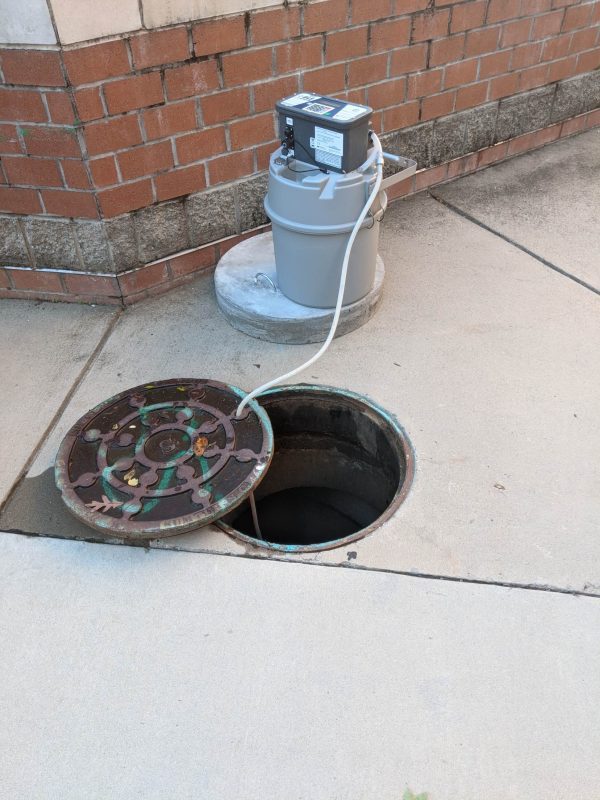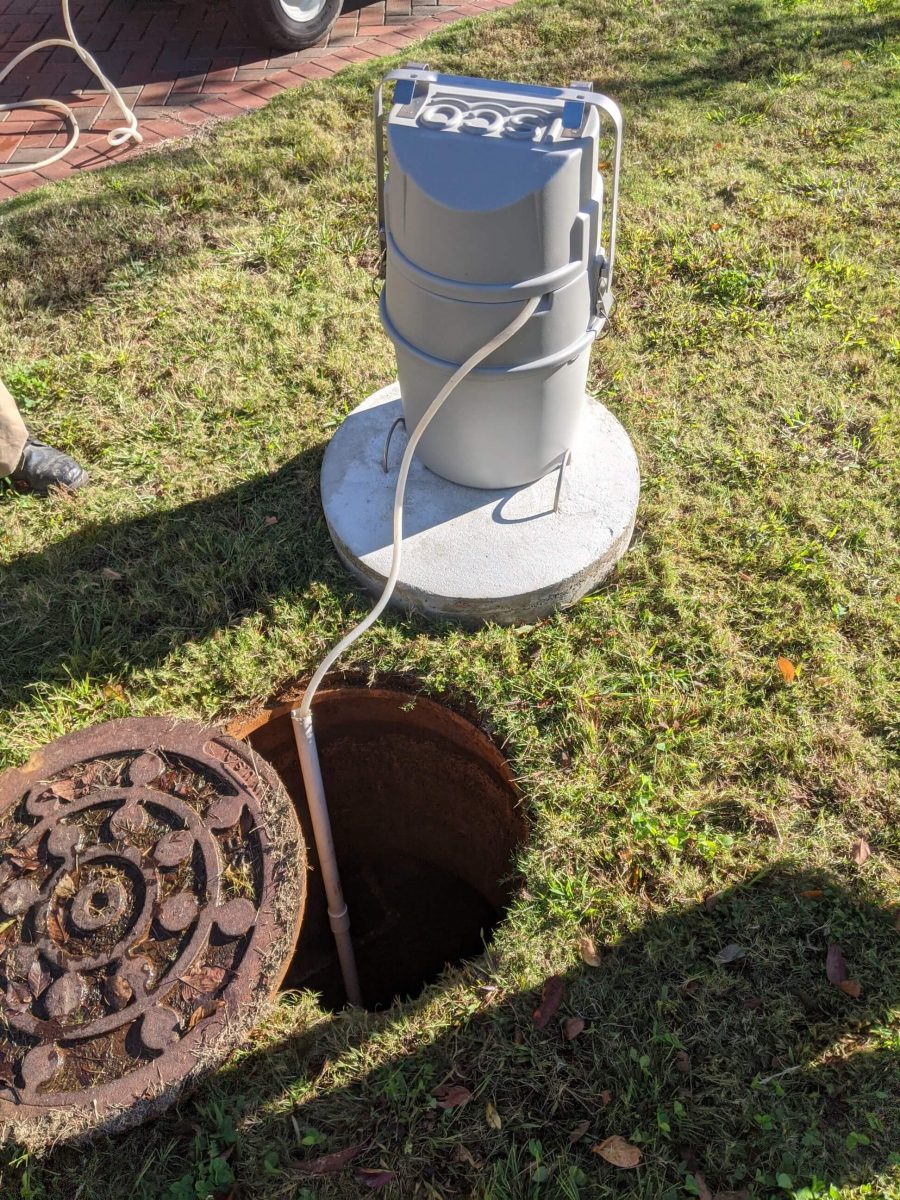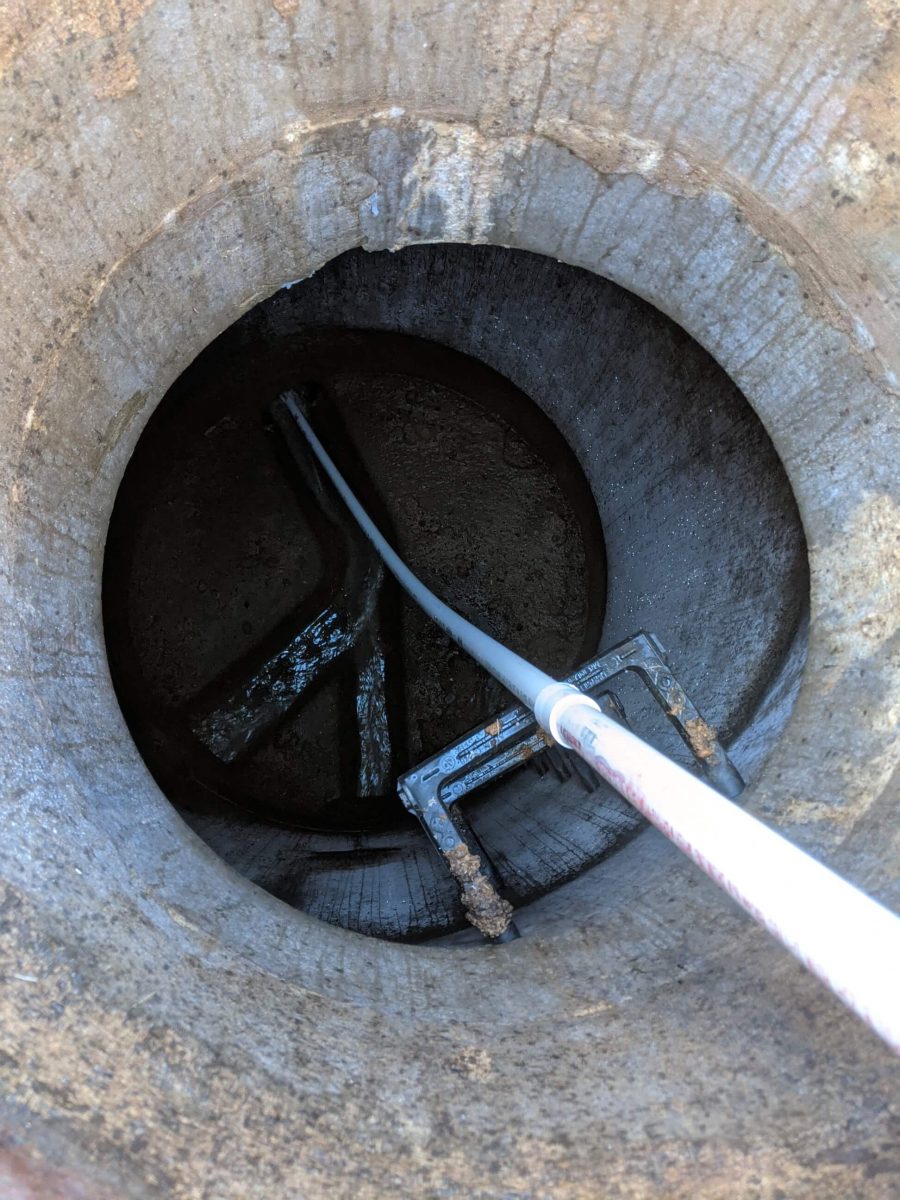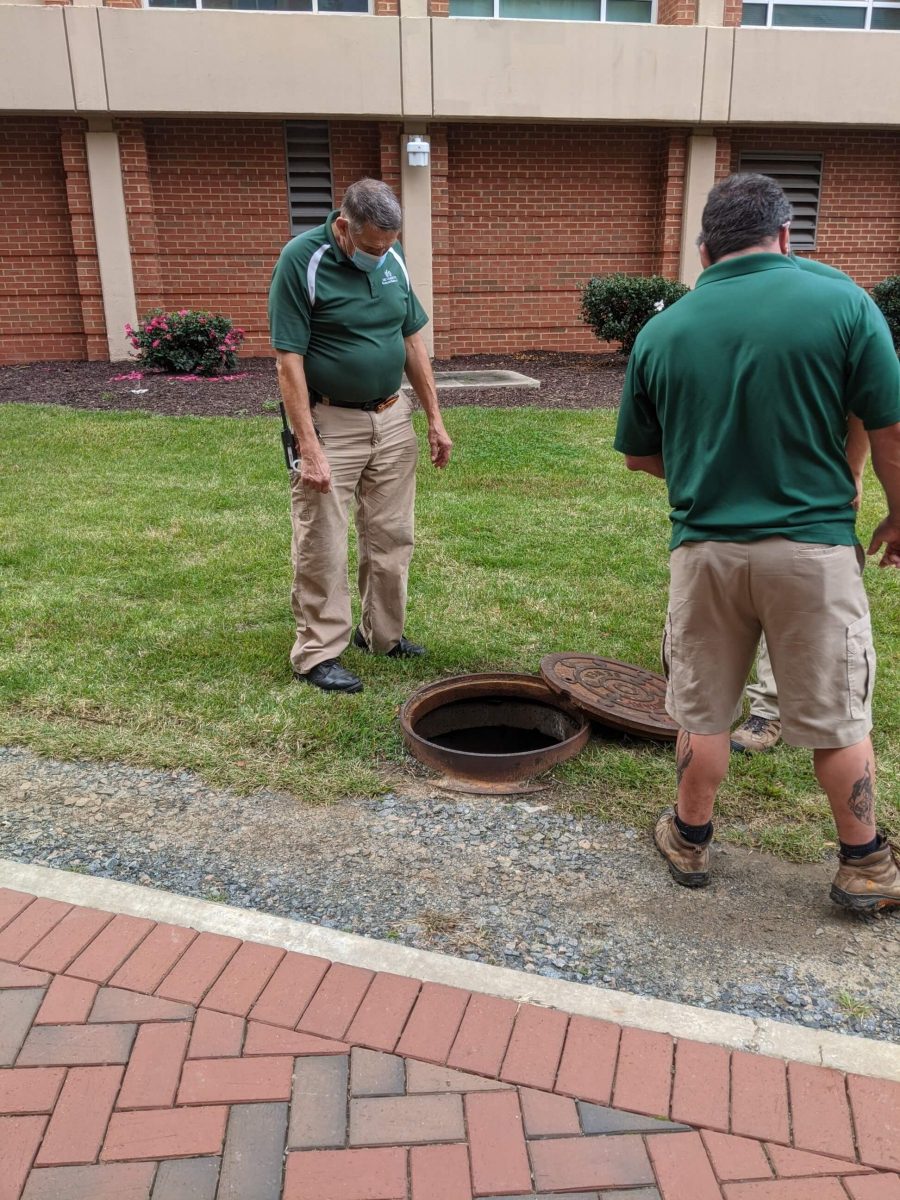FM’s Role in Wastewater Testing

 |
| Autosamplers are installed and tested |
Since September, UNC Charlotte has used wastewater sampling to mitigate the spread of COVID-19 prior to larger outbreaks, or clusters, in residence halls. Research has shown that the coronavirus can be detected in wastewater prior to an individual feeling symptomatic.
Campus researchers and students are testing and analyzing the wastewater itself, but staff members in Facilities Management (FM) were integral in establishing this innovative process on campus.
One of the staff’s first steps was to identify the campus’s sanitary sewer lines, which proved a difficult task, according to Greg Cole, a water resource engineer in FM.
“We keep maps that detail water lines, sewer lines and other utility lines on campus, but with all the major construction that has occurred in the last 10 years, some of those maps were outdated,” said Cole. “That made identifying the sanitary sewer lines difficult.”
Challenged but not deterred, Cole compared previous and current plans and documents to determine the best access points for wastewater sampling — a process he calls “archaeological engineering.”
 |
| PVC pipe leads test probes to their sampling location |
Once the best access points were determined — which are located in manholes and/or through cleanout access points — FM staff had to visually identify which locations would best serve each residence hall. Multiple buildings’ wastewater can be accessed by one manhole, so staff ran cameras up sewer lines to verify which building the wastewater flow was coming from and mark each pipe as a potential sampling location. The identified locations had to be specific — too far downstream and the sample would be too diluted to test.
After the sampling locations were determined, the team set up the autosamplers for the researchers. The autosamplers sample the wastewater every 15 minutes, and those results are collected about every three days for testing.
UNC Charlotte is among the first in the nation to use wastewater sampling in the fight against COVID-19. The novel approach also required novel solutions on the part of Facilities Management.
For example, when running the cameras to determine sampling locations, staff had to fashion a weight system that enabled the cameras to combat the opposition of wastewater flow.
 |
| Randy Huffman (FM) on the right and Jerry Sellers (HRL) are evaluating if the PVC pipe will hold the test probe in place |
“We ended up using PVC pipe to keep the test probes in place and combat the wastewater flow,” said Steve Fazio, plumbing technician. “This seems to have corrected the problem because we were able to get the probes where they needed to be to get good test results.”
Additionally, after the autosamplers were installed, it was discovered the devices needed to be fixed to ensure proper sampling and avoid movement from the natural water flow. This led, FM to engineer a concrete pad to stabilize the equipment.
Each of these solutions required collaboration among FM staff. The renovations shop was responsible for fabricating many of the solutions needed to ensure the equipment functioned properly, and the grounds team ensured all units were properly installed. Additional staff members helped provide safety measures for their colleagues throughout the project.
Now, FM’s role continues with the project on an on-call basis to resolve issues at sampling and probe locations and other physical maintenance.
“As a facilities management team, we’ve been thrilled to be part of supporting something critical to keeping our campus safe and operating during this time,” said Jon Varnell, associate vice chancellor of Facilities Management. “I’m proud of our staff and grateful for the partnership with research and economic development.”
Facilities Management staff members involved in the project include:
- Dan Baughman, grounds supervisor
- Mark Blackwelder, grounds technician
- Greg Cole, water resource engineer
- Gary Edwards, facility maintenance supervisor
- Steve Fazio, plumbing technician
- Don Gariepy, critical systems manager
- Anthony Gasparini, grounds technician
- Randy Huffman, water quality specialist
- Don Janus, director of Engineering
- Eric Klein, plumbing technician
- Josh Parker, BIM manager
- Steve Plot, grounds technician
- Michael Rogers, renovations shop supervisor
- Jim Stafford, grounds technician
Photos provided by Greg Cole